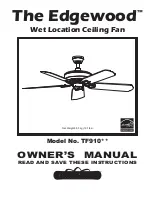
Operating instructions
M-WRG-S/Z-T(-F,-FC) ventilation unit
- 15 -
Meltem Wärmerückgewinnung GmbH & Co. KG
Am Hartholz 4 · D-82239 Alling
[email protected] · www.meltem.com
VENTILATION THE RIGHT WAY
V E N T I L AT I O N & H E AT R E C O V E R Y
5.2.2
How the cross-flow plate heat exchanger works
The warm extract air (item 5 in Fig. 10) drawn in from the interior is routed through the chambers of
the cross-flow plate heat exchanger (item 1 in Fig. 10) and heats them.
The cooled extract air is carried to the outside as exhaust air (item 3 in Fig. 10).
At the same time, the cold outdoor air that is drawn in (item 2 in Fig. 10) is routed through the
chambers of the cross-flow plate heat exchanger, which are separate from the extract air, and is
heated. The separate chambers prevent the outdoor air and extract air from mixing.
The heated outdoor air is routed into the interior as supply air (item 4 in Fig. 10).
Item Designation
1
Cross-flow plate heat exchanger
2
Outdoor air
3
Exhaust air
4
Supply air
5
Extract air
6 Rules for correct usage
6.1
General
►
Run the ventilation unit in continuous operation. The constant ventilation creates a good
and healthy atmosphere in the room.
►
Adapt the air flow through the ventilation unit to take account of the air load created by
cooking, washing, ironing, visitors, showers, sauna, etc.
►
Set the ventilation unit so that the relative humidity ranges between 40 % and 65 %.
People feel most comfortable within this range.
6.2
Operation in high atmospheric humidity
NOTE
►
In the summer months, ventilate cellars and similar rooms only during the night. Otherwise
condensation from the atmospheric humidity can cause damage due to damp on the cold
walls.
Fig. 10:
How the cross-flow plate heat
exchanger works














































